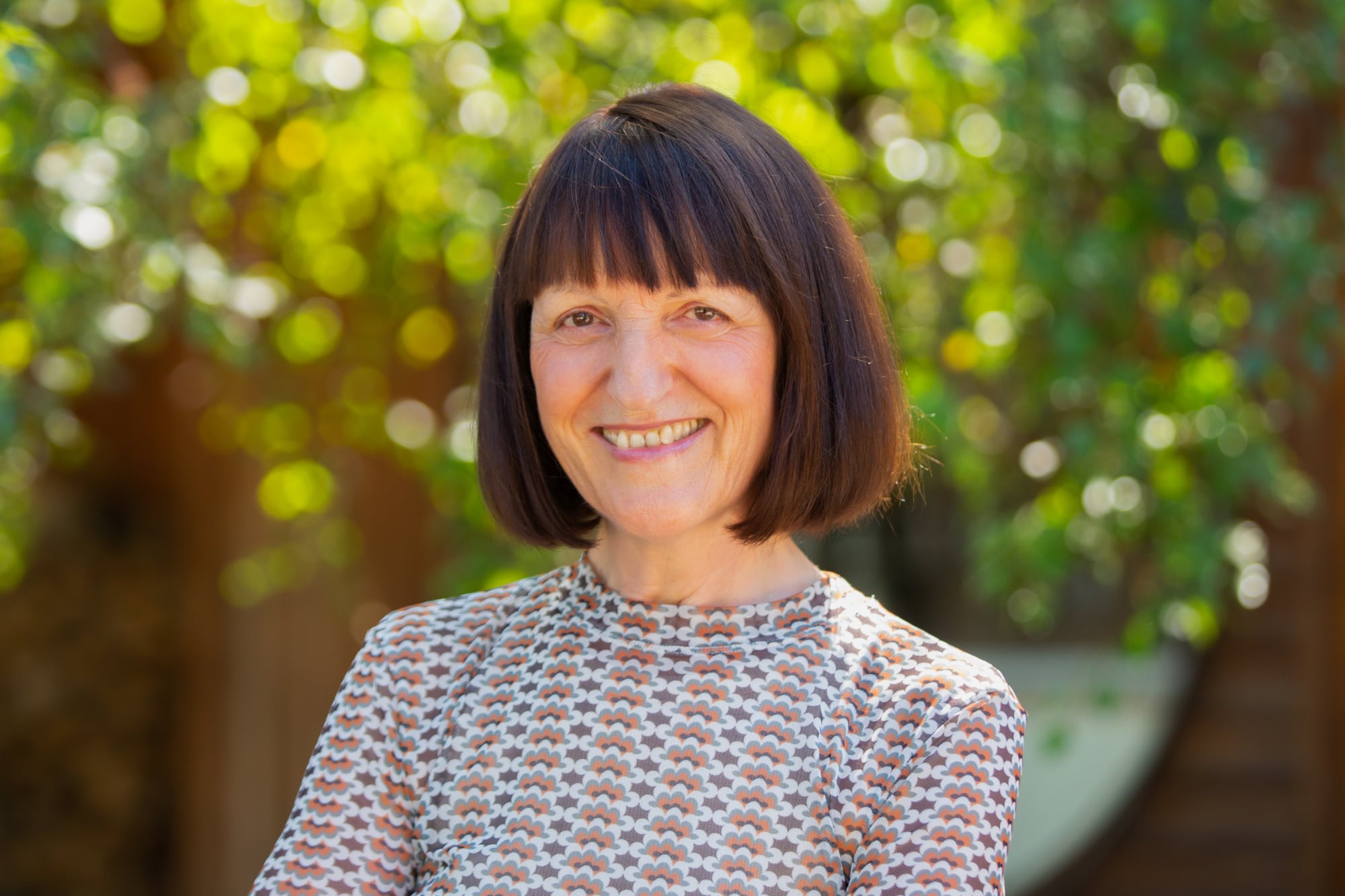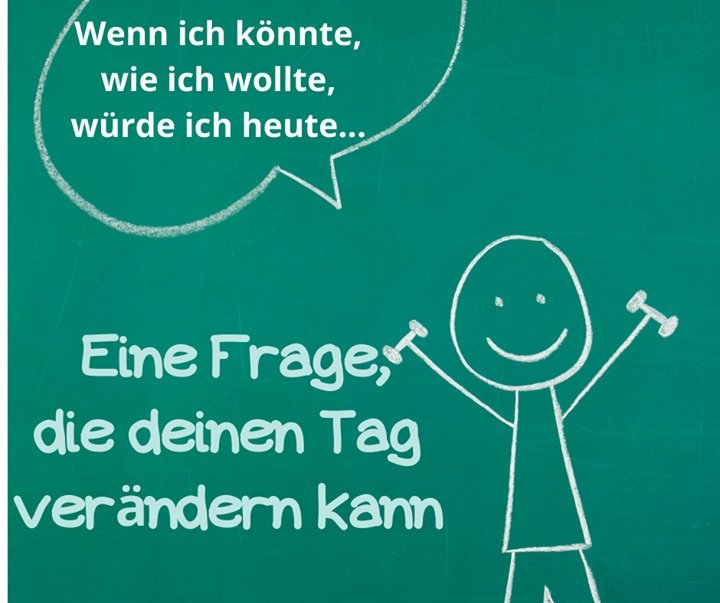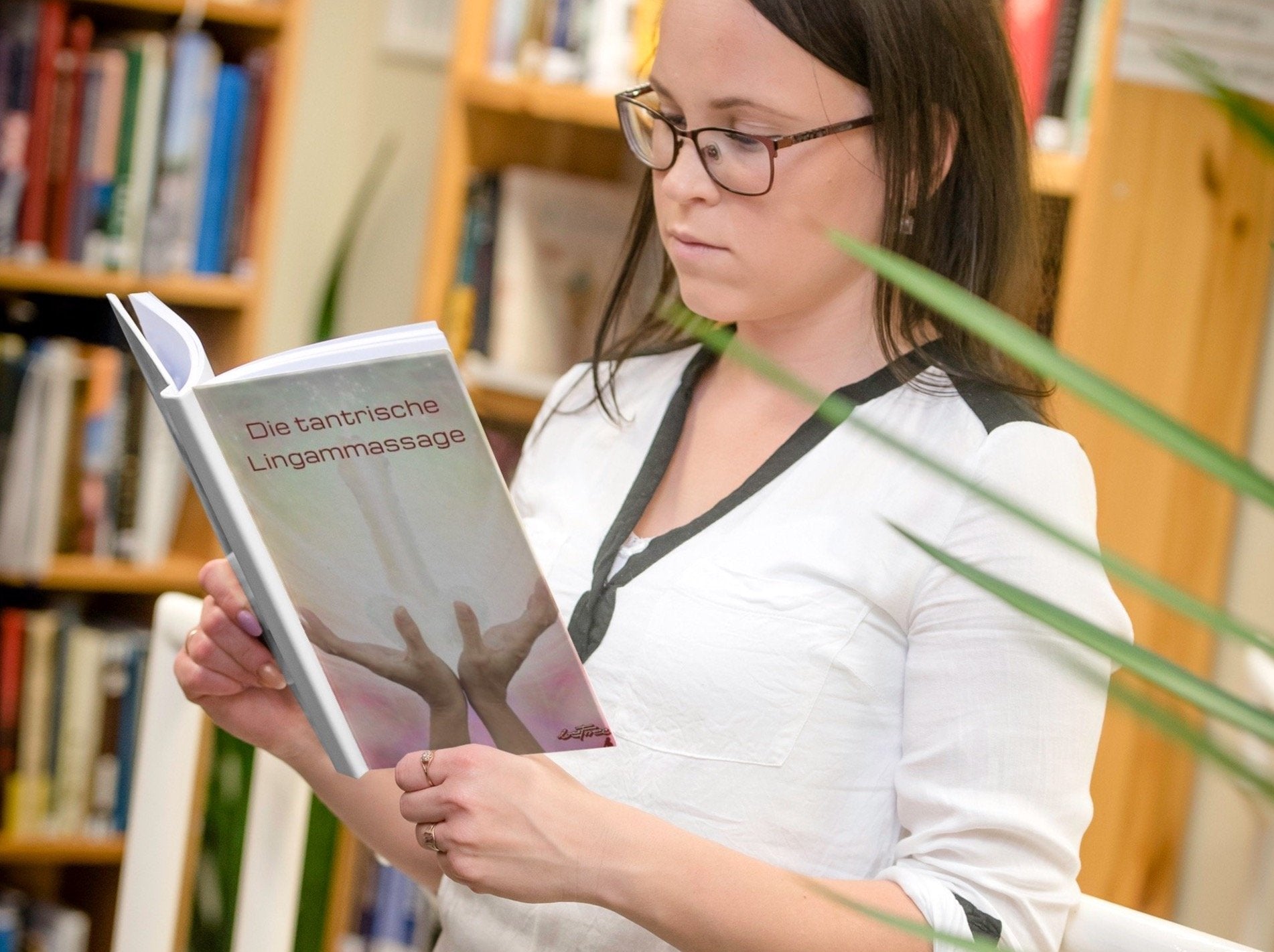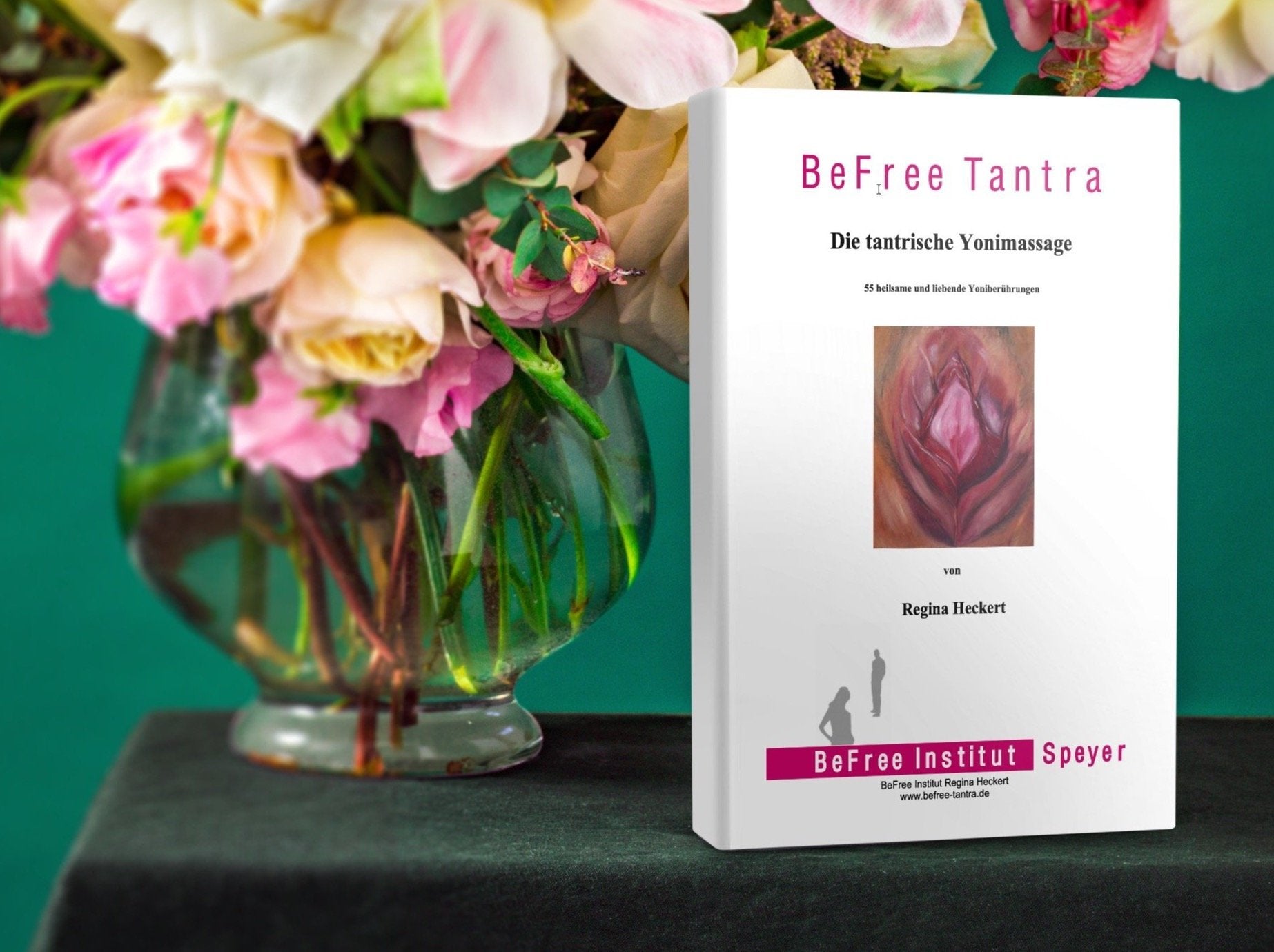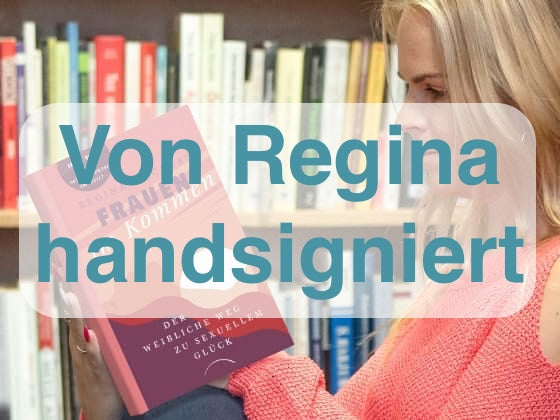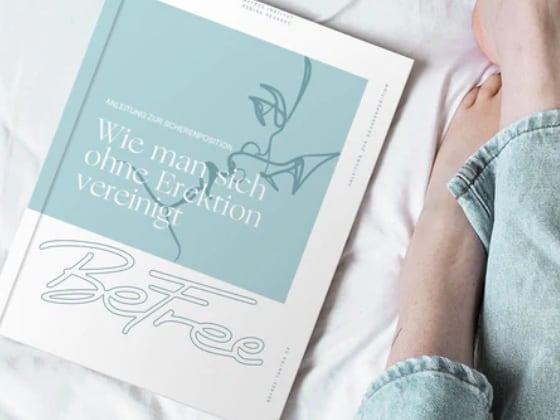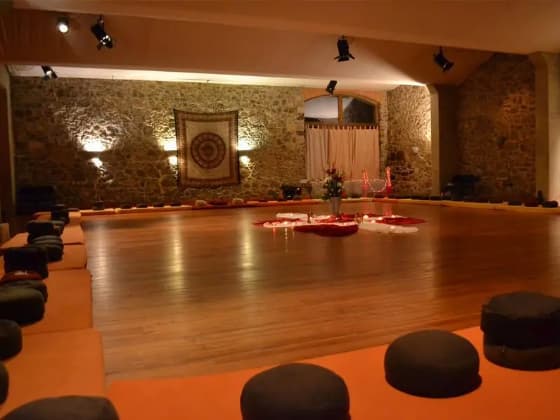Reginas weiblicher Weg zur ErfüllungDieses Buch rundet unsere langjährige Erfahrung in den durch Regina liebevoll begleiteten Seminaren in sehr geschütztem Rahmen gelungen ab.Den hier schon vorgestellten Rezensionen bleibt nicht viel hinzuzufügen.Ich habe das Buch als Erinnerung und Auffrischung von intensiv erlebter Seminararbeit bei ihr erfahren. Gleichzeitig ist es ein gelungener Einstieg in die persönliche Auseinandersetzung mit der Veränderung der weiblichen Sexualität, auch ohne vorher schon Seminarerfahrung gemacht zu haben.Durch Reginas jahrzehntelange Beschäftigung und Auseinandersetzung mit den Themen Beziehung und Sexualität gelingt es ihr, die Leserin als auch den Leser feinfühlig, liebevoll und mit dem ihr eigenen speziellen Humor auf eine individuelle Reise in die eigene Sexualität und Beziehungsfähigkeit zu entführen.Ich kann dieses Buch wirklich vielen Frauen und auch Männern auf ihrem persönlichen Weg zur Weiterentwicklung in der Liebe empfehlen!
Vor ca. zehn Jahren schrieb ich mich für den „Lustkurs für Frauen“ bei der Befree Tantraschule von Regina Heckert ein. Ausschlaggebend für meine Wahl war die Tatsache, dass Regina im systemischen Aufstellen von Bert Hellinger ausgebildet wurde. Das vermittelte mir das Gefühl, dass ich bei ihr Tantra in der entsprechenden Tiefe vorfinden würde. Ich wurde nicht enttäuscht. Die Studienbriefe und meine ausgefüllten Hausaufgabenblätter sind noch heute auf meinem Rechner gespeichert und ich lese sie gelegentlich, um mich an meine damaligen bedeutsamen Schritte auf meinem Lebens-/ Liebesweg zu erinnern, denn es gibt heute viel zu feiern und ernten aus diesen Schritten.Heute halte ich Reginas Buch in der Hand als ausgebildete Coach für Körperbewusstsein in der eigenen Praxis und mit mehrjähriger Berufserfahrung in der Begleitung solcher Schritte bei meinen Klienten. Und ich spüre das Gewicht seiner Lektüre und die Größe der Hoffnung seiner Leser. Die Leserin / der Leser wird nicht enttäuscht. Und wer die Lektüren ernst nimmt und Schritt für Schritt umsetzt, dem kann ich heute ganz gewiss Champagner ins Bett in Aussicht stellen.Anfangs versuchte ich noch eine Lieblingsstelle im Buch zu finden und begann die wichtigsten Passagen abzufotografieren. Doch die Bandbreite und die Tiefe der behandelten Themen würde meinen Handyspeicher sprengen, merkte ich bald und gab es auf. Ich liste jedoch einige Schlagwörter aus den Inhalten des Buchs auf, wohl wissend, dass ich nur ankratze und doch in der Hoffnung einen witzigen Einblick in die Spiritualität des Tantra zu ermöglichen: das Model-Syndrom, kollektive weibliche Wunden, Ausgleich im Bösen, eigenes Navigationssystem, Zumutung, heilende Wahrheit, den Garten der Liebe pflegen, Wunder einladen, Kreislauf aus Empfangen und Geben, Mutter-Thema, Wertschätzung und vieles mehr. Und ganz klar, dieses Buch ist für Frauen UND Männer gleichermaßen wichtig.
Das Buch Frauen im Kommen gibt sowohl Paar- als auch Singlefrauen ganz konkrete Tipps für ein erfüllendes Liebesleben. Für alle, die ihr Liebesleben endlich auf Vordermann bringen wollen: unbedingt lesen!
Charmant mit viel Augenzwinkern durch- oder quergelesen ist Regina Heckers Buch spannende & lehrreiche Lektüre für Männer und für Frauen. Neben dem reichhaltigen eigenen Erfahrungsschatz schenkt die jahrzehntelange Arbeit mit Männern und Frauen auf dem tantrischen Weg dem Buch einen guten Nährboden. Ich darf als Leserin staunen, welch ungeahnte Möglichkeiten mir mit den einfachsten Mitteln zur Verfügung stehen, meine Beziehung zu meinem Partner liebevoll zu gestalten, mich mutig zu zeigen um im offenen Austausch Wunder möglich zu machen. Das Buch ist kurzweilig und tiefgründig. Mit einem "praktischen" Teil mit illustrierten Beispielen der Begegnung zwischen Frau & Mann.Frauen im Kommen... ja ... in vielerlei Hinsicht !!! Wir dürfen uns freuen über die liebevolle Aktivierung der Weiblichkeit in unserer Gesellschaft <3Danke liebe Regina für dieses Buch! Wir freuen uns aufs nächste ;-)Und danke, dass ich diese Arbeit mit meinen Illustrationen praktisch unterstützen durfte!<3 <3 <3
Sehr interessant und bereichernd!
Es ist ein wundervolles Buch, das ich als Mann mit großer Begeisterung gelesen habe und bestimmt nochmals lesen werde.Es werden zwar Frauen angesprochen, doch immer wieder fühlte ich, dass die Stimme der Autorin auch mich als Mann anspricht.Immer wieder fühlte ich mich als Mann angesprochen.Die Klarheit und die Offenheit der Worte sind sehr beeindruckend und machen Lust auf mehr, auch auf den Besuch eines Seminars.Herzlichen Dank für diese einzigartige Buch.
Das lesenswerte Buch "Frauen im Kommen“ wirft mit über 235 Seiten einen aufschlussreichen Blick in das Liebesleben hinein und macht Frauen durch eine detailreiche Wissensvermittlung selbstbewusster beim Liebesspiel, sorgt im Ergebnis für mehr Lust im Liebesleben.
Sehr zu empfehlen, ich habe die brustmassage in die tantramassage integriert und vermittele sie gerne in meiner Gruppe.
Es ist ein Buch, das gut zu lesen ist. Ich habe schon einige Tantra Kurse besucht und empfand es für mich eine schöne Übersicht mit unterschiedlichen Blickwinkeln auf den Sex zu schauen. Es hat mich inspiriert, wieder mehr hinzufühlen, was ich mir wünsche und für meine Wünsche einzutreten. Es ist schön zu erleben, dass mein Mann dies auch beglückend findet. Es stärkt somit unsere Verbundenheit.Ich kann das Buch allen empfehlen. Vielen Dank!
